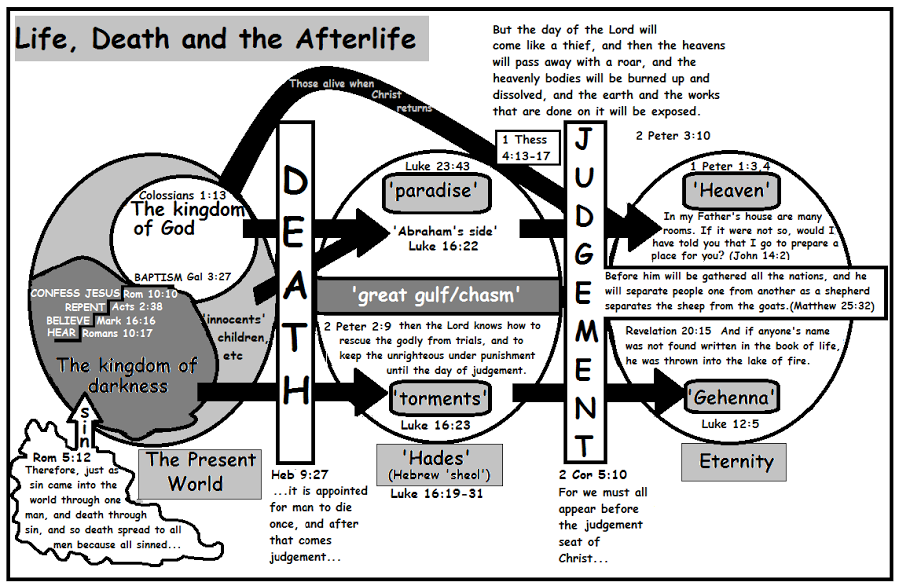“The Cup of Blessing” This is the second article on the Lord’s Supper and I would like to take time to concentrate on the cup and the contents.
We noticed in Part 1 that Jesus gave spiritual significance to the bread. He also gave spiritual significance to the next part of the Lord’s supper. Matthew 26:27–28 (27) And when He had taken a cup and given thanks, He gave it to them, saying, “Drink from it, all of you; (28) for this is My blood of the covenant, which is poured out for many for forgiveness of sins.
0 Comments
"This Bread Is My Body" One of the greatest privileges we have as Christians is being able to partake in the Lord’s Supper. When we partake in this sacred meal we partake in a memorial: we proclaim the Lord’s death until He comes (I Corinthians 11:26). In partaking in the Lord’s Supper each Sunday we continue a pattern that was given to the first century church (Acts 20:7). We are fulfilling the Lord’s command to worship in spirit and truth (John 4:23-24).
Jesus instituted the Lord’s Supper during the Jewish Passover, this has a great significance for us when we study the Lord’s Supper. The Passover is also called the Feast of Unleavened bread (Matthew 26:17). The significance of this is that it determined the items that could be in the house and therefore used during the Lord’s Supper. Life and death is a complicated subject, but one that the Bible does teach us about. The diagram below briefly describes what happens after we die, based on Evangelist Keith Thomson's three part series of sermons. You can listen to part 1, part 2 and part 3 by clicking on the links. If you have further questions, feel free to contact us at armadalecofc@gmail.com.
One of the questions often asked, sometimes as part of an attempt to disprove the existence of God is, "Why does God allow suffering?" The argument usually runs along this line: "If God is all loving and all powerful, how could he allow suffering to occur? If He really did exist, then He would do away with suffering, but since there is suffering, He does not exist."
The problem with this argument is that is makes several assumptions that are faulty: firstly that suffering is necessarily a bad thing; secondly that suffering serves no purpose and thirdly that there is no higher purpose than life on the Earth. Psalm 127:1
(1) Unless the LORD builds the house, They labor in vain who build it; Unless the LORD guards the city, The watchman stays awake in vain. The first part of this verse seems to contradict itself as it talks about the LORD building the house but then talking about people building the house. So who builds these houses in question? We understand that God needs to be behind whatever venture we engage in: Hebrews 3:4 (4) For every house is built by someone, but He who built all things is God. There are few, if any, questions more important than 'who is Jesus?' The world has a range of views of this important question, but they cannot all be true. The answer to the question will determine how we live our lives.
Some people claim Jesus to be a myth and not a historical character. Others believe him to be a great teacher or prophet, one of many who have walked the earth. Still others believe him to be a man and nothing else, in contrast to those who believe he is the Son of God. Even among those who claim him to be the Son of God there is disagreement about what that actually means. Today there are so many different churches, it can be rather confusing. There are churches calling themselves all kind of names and teaching a wide variety of doctrines. This is not what we read in the Bible. This not what Jesus wants.
The very first time we read the word 'church' in the Bible is in Matthew 16:18. Everyone, no matter what their personal beliefs are, accepts that there is a higher standard or authority in life, to which they can appeal. This is seen every time someone say "it's not fair". When a person utters these, or similar words he or she is either consciously or subconsciously acknowledging that there is an unwritten law which governs behaviour and to which we can appeal. When we identify something as cruel or unjust, we are saying that it does not match up with the idea of what is right.
A popular catchphrase is "follow your heart", this can be seen and heard as advice given not only in physical matters, but also in spiritual matters. In some circumstances, following one's heart is a perfectly acceptable practice. If a person was having trouble deciding between buying apples or bananas, the advice to follow one's heart is unlikely to have dire consequences. If, however, someone was to ask whether or not they should continue to take their life-preserving medicine, the consequences of 'following your heart' could be disastrous. By 'heart' people do not mean the blood pump in the middle of their chests, they refer to the mind or conscience.
The problem is that the conscience is something which can lead a person into error. It is possible to do something wrong but have a good conscience at the same time. The Apostle Paul is proof. Sometimes we look for answers to the wrong questions. If we start with a wrong question how can we get a right answer?
"Which church is best for me?" could be one such question. |
Armadale church of Christ, meeting at the Armadale Community Family Centre, 101 Challis Rd, Armadale, Western Australia.
Service times are 10AM and 5:00PM Sundays.
Please note that we are not conducting mid-week services for the time being.
To submit a question or comment, please click here.
Service times are 10AM and 5:00PM Sundays.
Please note that we are not conducting mid-week services for the time being.
To submit a question or comment, please click here.



 RSS Feed
RSS Feed